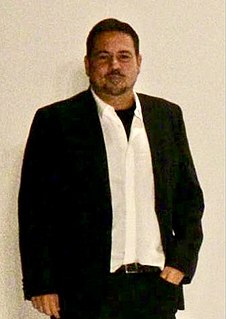A Quote by Paul Clitheroe
Learn as much as you can about your proposed business. Ask questions. Join industry associations. Study successful competitors carefully.
Quote Topics
Related Quotes
When you are in a business, you must join associations, (both local and international), so that you can exchange ideas, with people from the same industry, including your competitors. This is how you “benchmark”. Before you dash off to implement something, try and find out what others have done, or not done This is really how you should be using tools like the Internet.
Beware of advice. Consider your sources carefully. Look them up. See if you respect what they've made. Get educated. Be informed about who's real and who isn't. Study your craft and your industry, practice all the time, challenge yourself - write things you think you can't, try things you have been told you shouldn't try - leave room for surprises, and learn how to collaborate.
Join the bold, the brazen, the unintimidated. Join not having excuses. Join the idea that fun is the source of all joy. Join the unwillingness to give up. Join doing things your way. Join not joining. Join that purpose is stronger than outcome. Join your gut. Join the constant challenge of seeking greatness. Join play. Join the hunger to find what makes you happy. Join karma and nature and the effect you have on your world. Join your philosophy. Join something bigger than you. Join what you believe.
There is a terrible thing that's been happening probably for the last 20 years or so and it's called the music business. And music isn't really business; it's work and you got to pay and you've got to buy your guitar or go into the studio. So there is a business side but when people say, "I'm going into the music business," it's not. It's about expression. It's about creativity. You don't join music, in my mind, to make money. You join it because it's in you; it's in your blood stream.
To retire by the age of 35 was my goal. I wasn't sure how I was going to get there though. I knew I would end up owning my own business someday, so I figured my challenge was to learn as much as anyone about all businesses. I believed that every job I took was really me getting paid to learn about a new industry. I spent as much time as I could, learning and reading everything about business I could get my hands on. I used to go into the library for hours and hours reading business books and magazines.
I invited a group of students to my studio to expose them to both the creative and business sides of the fashion industry. It was fun because the group was so bright and full of curiosity. They asked really challenging questions about all aspects of the business and absorbed so much information so quickly.
Aristotle turns out to be an extremely practical guide for those asking such personally profound questions, like: What should I do next to find meaning and fulfillment in the next stage of my life?. He offers timeless advice to business people who want to be successful both at work and in their private lives. For example, he shows how business leaders can create successful organizations and, at the same time, behave ethically. Come to think of it, the CEO of Wal-Mart should study Aristotle!







































